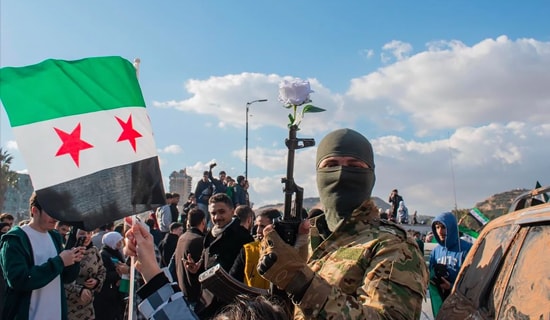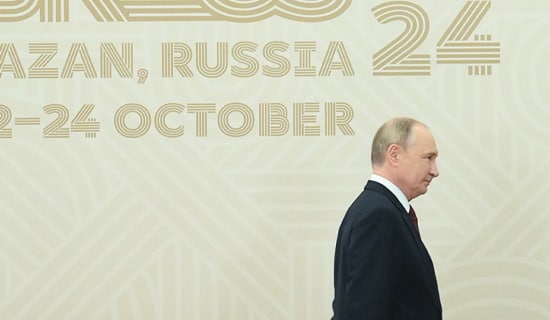Following are excerpts from an interview given by the Egyptian Foreign Minister 'Amru Moussa to the pro-Syrian Lebanese daily Al-Safir.[1]
The Oslo Process is Over
"Minister Moussa said, 'The peace process, as we knew it during the previous years, has ended, and none of the Arabs in general and the Palestinians in particular will agree to go back to the negotiating table within the previous parameters. The top priority is supporting the steadfastness of the Palestinian people and their resistance to the Israeli occupation in order to lay new foundations, which will design a final framework for a solution the way the Arabs see and want it. These foundations will serve future negotiations.'"
"Moussa said that: 'From now until the date of the new Arab summit, there are five months in which we have to exert all of our efforts to make the US, Israel and the whole world understand that we will agree only to rights set by international legitimacy, be it in Syria, Palestine, or in Lebanon. No party can impose concessions on the other side, because the issue does not relate only to Palestinians or Israelis. Rather it relates to the Arabs as a whole.'"
Discussing the Summit
"Moussa said that the Arab summit was not a disappointment. Even though its resolutions did not exactly answer the expectations of the raging Arab street, they still had qualitative importance: 'The very convening of the summit, overcoming the inter-Arab disagreements, and setting the time-table were [in themselves] an achievement which enabled other goals supporting the Intifada and the resistance in occupied Palestine to be reached.'"
"Moussa pointed out that the resolutions that were made are not common ones, and expressed his confidence that the Arab states would adhere to and implement them. Tunisia, Morocco, and Oman implemented the resolutions immediately. The relations with Israel, which constitute a part of the regional cooperation framework, were canceled in a comprehensive and final way. There will be no new relations with Israel from now on, as long as the peace process is not completed with the restoration of all Arab rights. Also, all measures will be taken to prevent Israeli infiltration of the Arab states, in addition to the clear statement that Israel is directly responsible for all the steps that taken by the Arab states, including severing relations with it."
"...[R]egarding relations with Israel, Egypt would take steps that coincide with Arab interests, in accordance with the resolutions of the Arab summit. [Moussa] declined to answer directly what those steps would be [but] said that the Arab states immediately began to carry out the summit's resolutions regarding financial aid to the Palestinians, and regarding diplomatic, political and economic relations between the Arab states and Israel."
Trying Israeli War Criminals
"Moussa pointed to the importance of the summit's resolutions regarding the establishment of an international tribunal to try Israeli war criminals. The Arabs will be very serious about it and will make all necessary efforts. 'We have indictments against all those who committed crimes, caused crimes, or gave orders to carry out crimes against the Palestinian people. These criminals are not different from those who committed war crimes in Rwanda and Yugoslavia.' Moussa added: '[In the past] the new world order intervened in the internal affairs of Arab and non-Arab states under the title of human rights in this or that regime. Now we ask, 'Are not the crimes that Israel commits a flagrant violation of human rights?'"
"...Moussa added, '...Israel's statement, blessing the results of the meeting, are nothing but throwing sand in one's eyes in order to provoke... I am sure Israel is not happy with this resolution of the conference.'"
Supporting the Intifada
"Moussa discussed the clear American bias in favor of Israel, which was the main factor harming the peace process, along with the crimes committed by the Israeli government, which caused the death of the peace process. Moussa said: 'The next step is the most sensitive and delicate. It is necessary to support the Intifada and resistance in Palestine as much as possible. The Arabs should take the following steps: 1. Support the Intifada and the steadfastness of the Palestinian people politically. 2. [Provide] material support for the Palestinians by transferring all possible funds to strengthen the economic situation and the welfare of the inhabitants of the occupied territories. 3. Make political and international efforts to prevent the siege and injury of the Palestinian people. 4. [Do not] surrender to any threat and [do not] go back under any circumstances to the previous mechanism of negotiations.'"
"Moussa expressed his concern about the escalation of violence and of Israeli crimes against the Palestinians, saying 'The Intifada continues, and according to the words of Chairman Arafat, up till now it is a peaceful Intifada. But it will not necessarily remain that way.' Moussa pointed out that the Israelis are trying to deceive the Arabs... 'They know that their threat to halt the negotiations is an empty threat, because the negotiations have been frozen [anyway]. The Arabs will not agree to go back to the negotiations, without establishing a new framework, and designing a new strategy.'"
"Moussa reemphasized the support of Egypt and all the Arabs to the resistance movement and to Hizbullah in its struggle to liberate the still-occupied Lebanese lands. 'Israel is the one remaining in part of the lands, and it is the one that did not release the prisoners [it is holding] and therefore it is the responsible for what is happening.'"
[1] Al-Safir, (Lebanon) October 24, 2000





